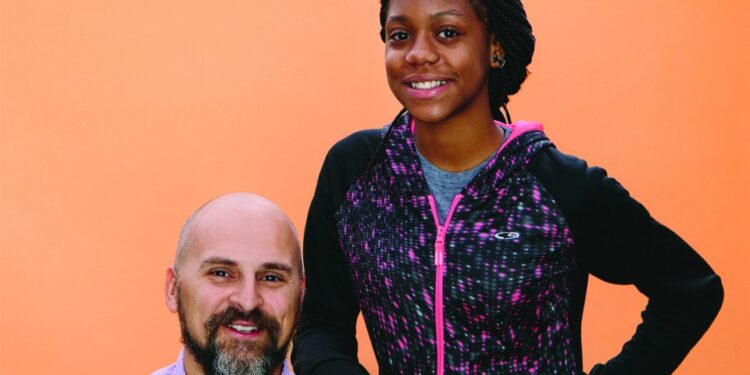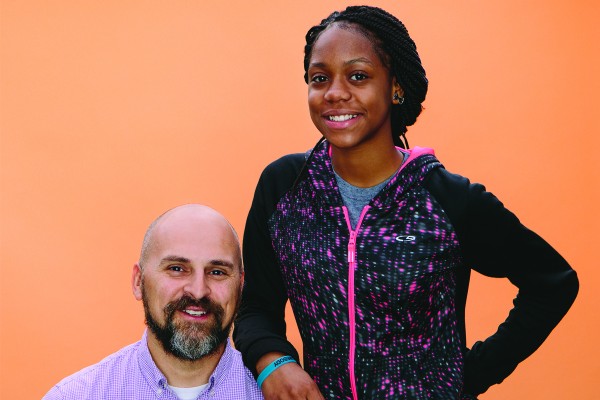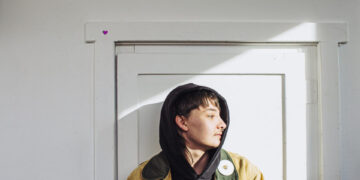Miah Sommer hopes his Bike Union venture will turn the tide for many Omaha-area youth.
The Bike Union opens this summer as a full-service bike shop in a flying saucer-looking former bank building near 19th and Dodge streets. Sommer is renovating the space with the help of multiple foundations and private donors.
Under the themes of “Sales…Service…Social Change,” the Bike Union will sell refurbished bikes and also offer bicycle repair. Its most important function, however, will be employing at-risk youth and recalibrating their direction in life.
“I hear the term ‘disadvantaged youth,’ but we don’t see it that way,” Sommer says. “Central to our philosophy, these kids are just as capable as the next person. They are not disadvantaged in their abilities, just in the opportunities they’ve had to succeed.”
Sommer understands the struggle. He was determined not to become a statistic—one of those kids who couldn’t overcome a tough upbringing to avoid poverty, homelessness, or jail. He made it to college and got heavily involved in the music and bicycling industries, where he discovered a talent for managing and mentoring others. The Bike Union, he says, is the perfect bridge between his past and his passion for helping at-risk youth.
“We want to give them the tools they need to achieve a vision of success.”
Sommer plans to deliver those tools by hiring youth who are aging out of the foster care system. Too many of those kids, he says, don’t graduate from high school. Too many can’t find a job. Too many are…headed nowhere.
Working 20-hour weeks in a 12-month program, Sommer envisions his workforce being trained in position-specific skills and general core competencies that make them attractive to potential employers.
“There are so many ways we can benefit youth and the community through this shop,” says Sommer, who previously launched another youth bike mentoring program at a local Trek dealership. “We want to be self-sustaining as soon as we can so we can serve as many youth as possible.”
Sommer is banking on the fact that a growing bicycle culture in Omaha will fuel the service side of the shop, and he counts on the giving nature of the city to keep the shop stocked with donated bikes that can be refurbished and then sold to further fund the program.
“If you get your bike serviced here, get a flat changed here, you’re helping fund a non-profit and change the community,” Sommer says. “By donating or purchasing a bike, you will be turning your compassion into money to help fund a nonprofit and change the community.
“Donating bikes, time, and money will be the lifeblood of what we do for these kids.”
For Sommer, it’s a chance to create opportunities he had to find himself when he grew up in south Omaha. Sommer says he decided on his own that he didn’t like his educational path, “so I started reading books and haven’t stopped since.
“The toughest part of growing up for me was people being content with you becoming a statistic,” Sommer says. “Rather than let that happen and feel pity for these kids, I want to show them a better path.”














